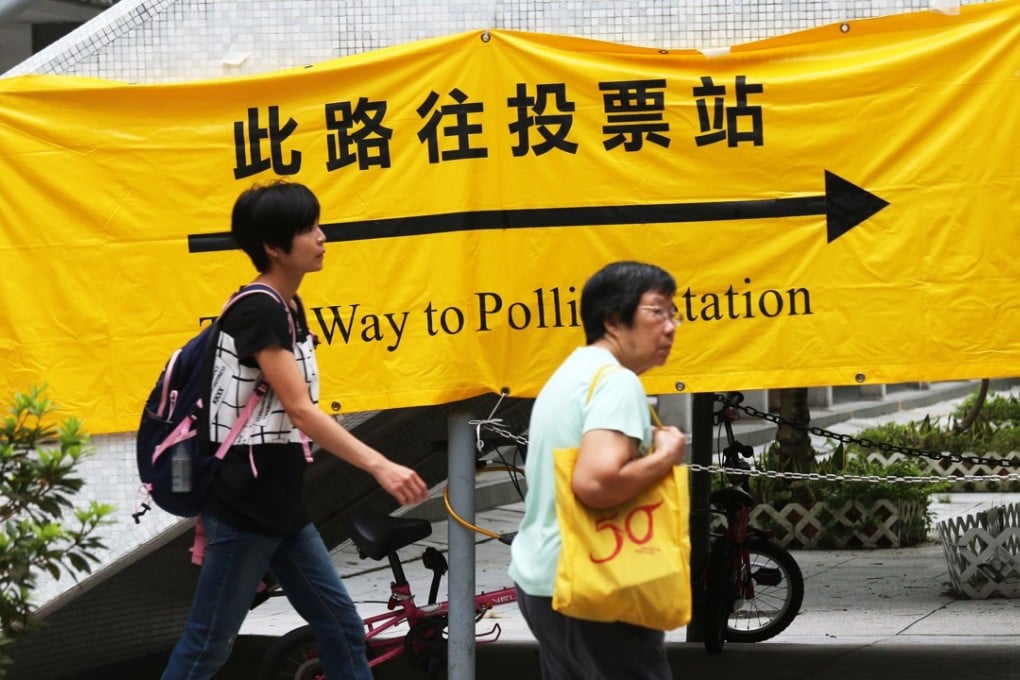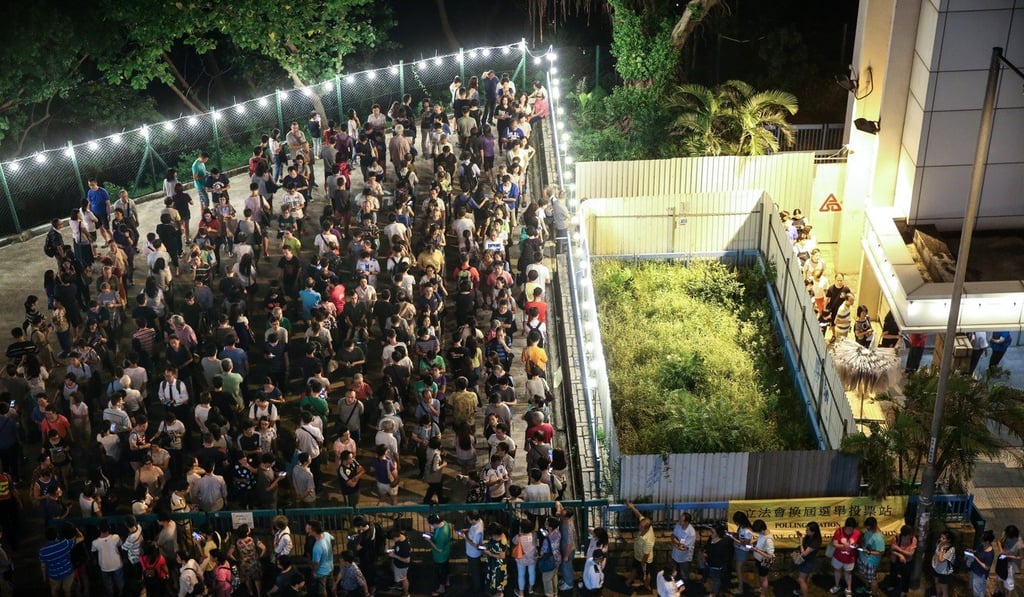Hong Kong government scraps plan to shorten voting hours after overwhelming public opposition
Some 99.7 per cent of 15,400 submissions to consultation say voters’ rights ‘should not be sacrificed for administrative convenience’

A government suggestion of shortening polling times for Hong Kong elections has been shelved after an overwhelming number of objections from people fearing the measure would strip shift workers of their voting rights.
The development came on Tuesday as the administration submitted to the Legislative Council a report which wrapped up the results of a seven-week public consultation last year on three issues related to elections.
While the government had said it was open to shortening polling hours – which normally last from 7.30am to 10.30pm – it suggested in the consultation paper that the move would help alleviate the fatigue suffered by candidates and electoral staff and ease the booking of venues.
The plan was lauded by the pro-establishment parties, but strongly opposed by pan-democrats, who accused the government of trying to cut their chances in polls, as a lot of their supporters tend to vote in the final hours.

Long queues formed in Taikoo Shing – a middle-class private housing estate and pan-democrat stronghold – in the 2016 Legco elections, the last vote being cast at 2.30am, four hours after polls were scheduled to close.
The government on Tuesday announced it would not push the change after receiving an overwhelming response from members of the public – 99.7 per cent of the 15,400 submissions – who argued the rights of voters “should not be sacrificed for administrative convenience”.